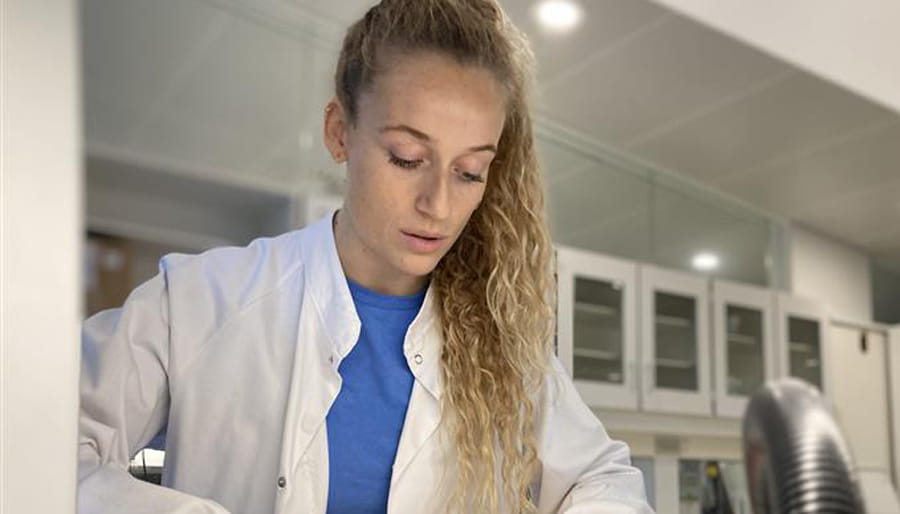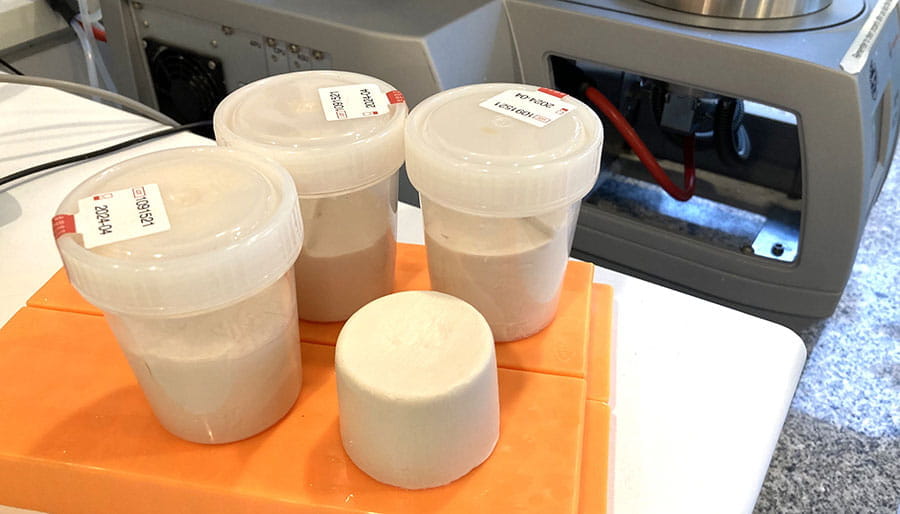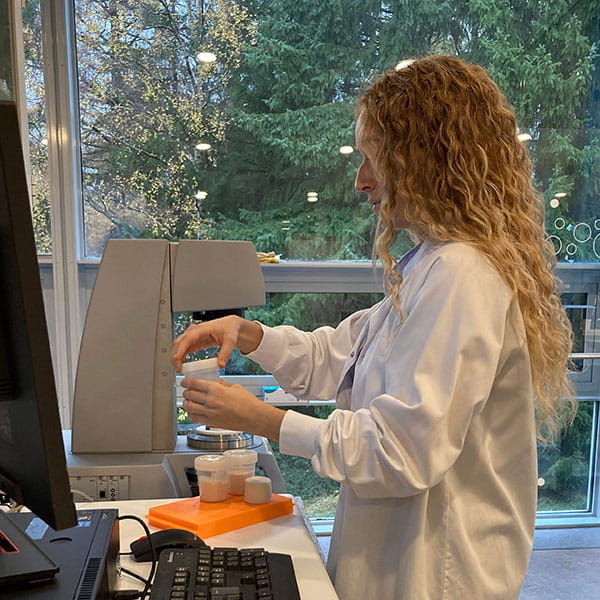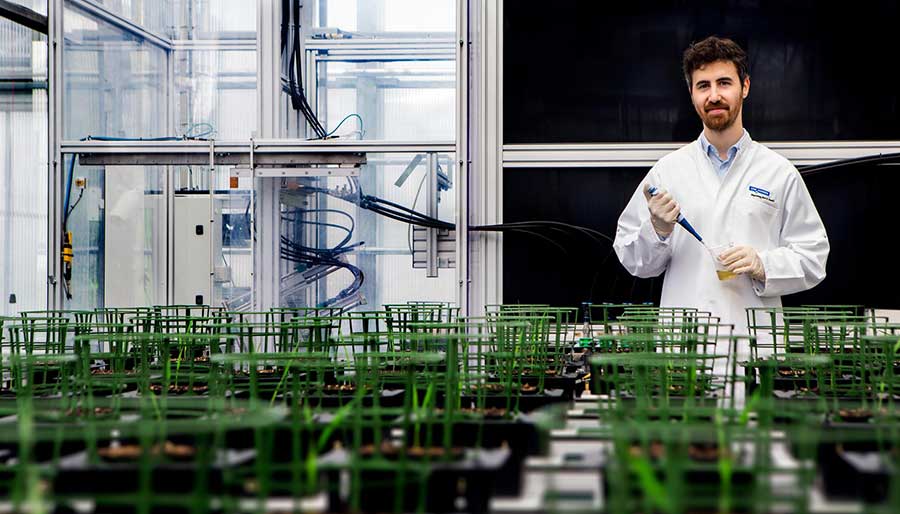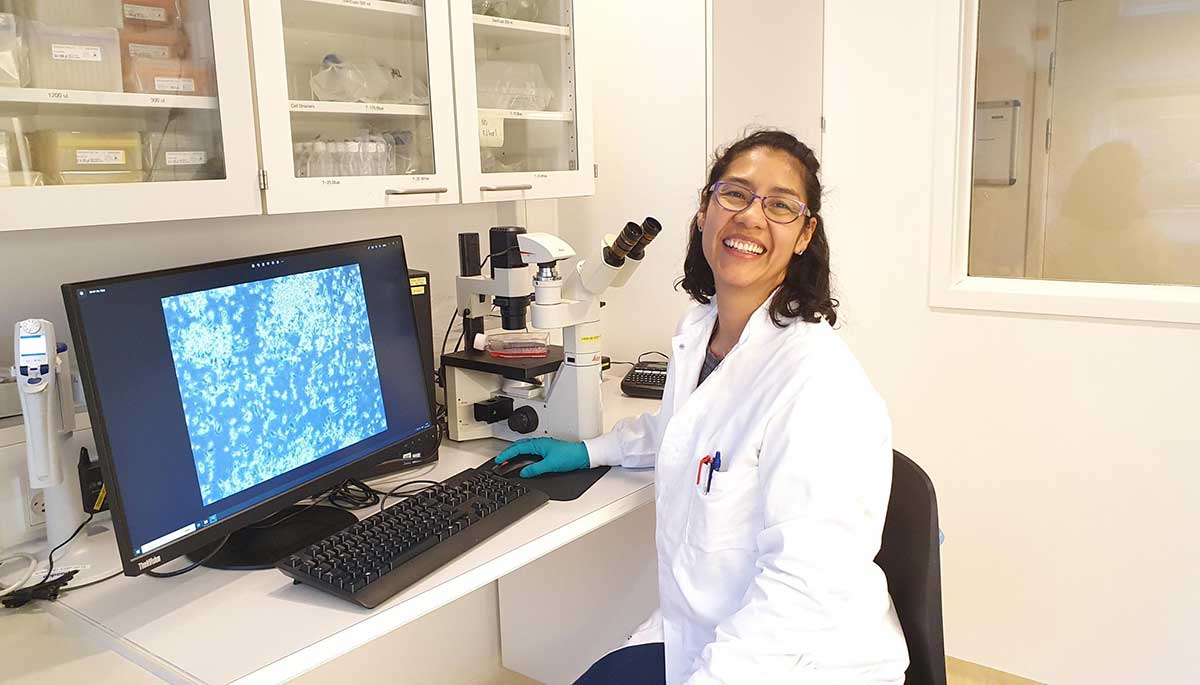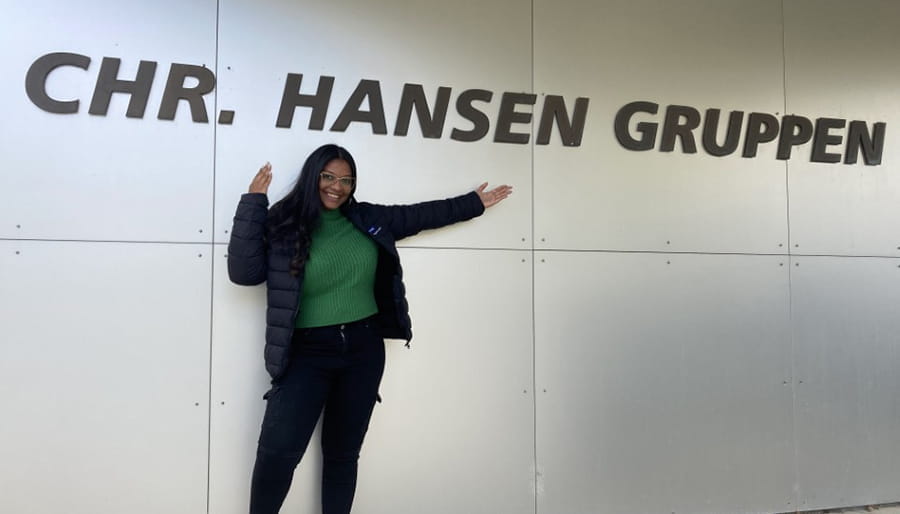What is your PhD project about?
“Explained with only a few words my PhD thesis focuses on understanding how to build texture and flavor through fermentation. Basically, we rely on fermentation with lactic acid bacteria and enzymatic treatment to understand how to restructure plant proteins from a liquid matrix into a gel with an improved aroma profile.
If you look at what's on the market, you see coconut oil cheeses, which present a low nutritional value, or nut-based cheeses, which are too expensive to be consumed regularly. Moreover, their texture and flavor do not meet consumer expectations. I aim to understand how we can use bacteria and enzymes to improve texture and flavor in plant-based cheeses."
I believe the meaning of science is when discoveries are transformed into products or services that can solve needs.
How did you establish your partnership with Chr. Hansen?
“When I discovered the opportunity to do an industrial PhD, I reached out to my supervisor at the University of Copenhagen to present my idea and the topic I had in mind. He supported it right from the beginning. I knew of Chr. Hansen before moving to Denmark from Spain seven years ago, and I was very keen on establishing a collaboration due to their vast knowledge of microbiology and fermentation processes. I was being very persistent. I reached out to many scientists from Chr. Hansen through LinkedIn.”
Carmen was soon after invited to Chr. Hansen by the Plant Based Application team in Denmark to present her topic. The team found it relevant and wanted to support it, so they quickly applied for a grant.
What made you want to do an industrial PhD instead of an academic PhD?
“I wanted to apply my findings and not only publish them in a scientific article with the risk of people forgetting about it after a while. I believe the meaning of science is when discoveries are transformed into products or services that can solve needs.
Another thing is that I work in the application department and other departments in the company, which means I can access different resources. Machines, new technology but also people and their knowledge. I talk to and collaborate with different scientists across departments. I work with plant-based cheese, but that means I work with microbiology, material science, flavor chemistry … When talking to experts in these fields, I can apply their knowledge to my project.”
Carmen explains how doing an industrial PhD builds a bridge between the industry and academia. The combined knowledge supports combatting some of the challenges the industry is facing.
“I think Chr. Hansen is good at doing that. The company is very involved in the scientific community, establishing collaborations with academic and research institutions and being involved in publishing scientific articles."
What's it like being a PhD student at Chr. Hansen?
“I feel like I have the flexibility to organize myself. I can work with what I like, in the way I want and at my own pace. This is something that enables me to work well and perform better. I collaborate with two Australian partners, and I went to Australia for a research stay for six months during my PhD. I worked with great scientists from Bio21 (Institute of Molecular Science and Biotechnology), CSIRO (Commonwealth Scientific and Industrial Research Organisation), and I visited Chr. Hansen’s office in the outskirts of Melbourne. It was an awesome experience.”
What does a typical workday look like?
“I’m an early bird so I always have breakfast at home and come to the office as early as possible. I go straight to the lab because my trials are typically quite long, as I need to prepare my samples and then ferment them. In the meantime, I write papers, read studies, or have meetings but normally I spend most of my time in the lab or doing data analysis on the computer. Currently, however, I’m constantly in front of my computer, as I’m handing in my thesis soon.”
No one has “cracked the code” for plant-based cheese yet. That’s what keeps me hungry for more.
What’s the most exciting aspect of your PhD project?
“It is the fact that there is no answer yet to what I'm researching. No one has “cracked the code” for plant-based cheese yet. That’s what keeps me hungry for more. There are plant-based cheeses on the market, but they are mostly the result of a “quick fix”, in my opinion, and science is very much needed to improve them. That is what keeps me on my toes in the sense of wanting to do more and not losing the passion for my project.”
Why did you choose to work with science?
“My parents have had a big influence on my interest in science, especially my dad since he is a biologist. In high school, I was super passionate about biology. I would often go home after school where my dad would give me a second lecture and in exams season, I would stay up until late studying, simply because I loved it. For my bachelor's, I chose to study food science. I have always been very curious and wanted to create or develop something myself. And I have always loved textures and structures. Perhaps that is what has led me to work with cheese,” she laughs.
What are your aspirations and hopes for your future within science?
“I’m not done working with future foods. I think this PhD is just scratching the surface of what’s going to be a long scientific journey. I still want to continue researching and developing solutions for food-related challenges together with Chr. Hansen and somewhere down the road, maybe turn my research into product development. It would be amazing to see all the knowledge I gained from my PhD to be applied in the right way so, at some point, high-quality, yet affordable and climate-friendly plant-based cheeses will hit the shelves in supermarkets.”

